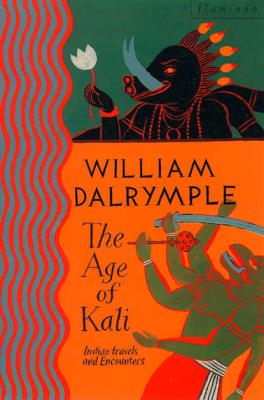ТОП просматриваемых книг сайта:
The Age of Kali: Travels and Encounters in India. William Dalrymple
Читать онлайн.Название The Age of Kali: Travels and Encounters in India
Год выпуска 0
isbn 9780007373161
Автор произведения William Dalrymple
Жанр Хобби, Ремесла
Издательство HarperCollins
The Age of Kali
Indian Travels & Encounters
William Dalrymple
To JOCK
who saw the point long before I did
Table of Contents
Warrior Queen: The Rajmata of Gwalior
Finger-Lickin’ Bad: Bangalore and the Fast-Food Invaders
At the Court of the Fish-Eyed Goddess
Benazir Bhutto: Mills & Boon in Karachi
The Age of Kali is a collection of peripatetic essays, a distillation of ten years’ travel around the Indian subcontinent. For six of those years I was based in Delhi working on my second book, City of Djinns, while for the other four I wandered the region, on a more nomadic basis, for a few months each year. My travels took me from the fortresses of the drug barons of the North-West Frontier to the jungle lairs of the Tamil Tigers; from flashy Bombay drinks parties to murderous Bihari blood feuds; from the decaying palaces of Lucknow to the Keralan exorcist temple of the bloodthirsty goddess Parashakti, She Who is Seated on a Throne of Five Corpses. All the pieces are the product of personal experience and direct observation.
The book’s title is a reference to the concept in ancient Hindu cosmology that time is divided into four great epochs. Each age (or yug) is named after one of the four throws, from best to worst, in a traditional Indian game of dice; accordingly, each successive age represents a period of increasing moral and social deterioration. The ancient mythological Golden Age, named after the highest throw of the dice, is known as the Krita Yug, or Age of Perfection. As I was told again and again on my travels around the subcontinent, India is now in the throes of the Kali Yug, the Age of Kali, the lowest possible throw, an epoch of strife, corruption, darkness and disintegration. In the Age of Kali the great gods Vishnu and Shiva are asleep and do not hear the prayers of their devotees. In such an age, normal conventions fall apart: anything is possible. As the seventh-century Vishnu Purana puts it:
The kings of the Kali Yug will be addicted to corruption and will seize the property of their subjects, but will, for the most part, be of limited power, rising and falling rapidly. Then property and wealth alone will confer rank; falsehood will be the only means of success in litigation. Corruption will be the universal means of subsistence. At the end, unable to support their avaricious kings, the people of the Kali Age will take refuge in the chasms between mountains, they will wear ragged garments, and they will have too many children. Thus in the Kali Age shall strife and decay constantly proceed, until the human race approaches annihilation.
In my travels in Pakistan and North India there were moments when it seemed as if the Kali Yug really was upon us. In the bandit-infested badlands north of Lahore, in Bihar and in parts of eastern Uttar Pradesh I found an ancient landscape overwhelmed by rapid change, where the old certainties and the ancient social order had been swept away, but where the new order had yet to fully establish itself. In Lucknow I witnessed a war being fought between rival wings of the student union, where each side was armed with grenades and assault rifles; in neighbouring Bihar, it seemed as if the state had finally succumbed to the tidal wave of violence, corruption and endemic caste warfare that had engulfed it. Indeed things were so bad that the criminals and the politicians of the state were said to be virtually interchangeable, and the government had pretty well given up any pretence of providing water, electricity

